Dark times
Around 300 years after the last book of the Tanakh, the Old Testament, was written, the events that the prophet Daniel had predicted came true. (Daniel, Chapters 8 and 11)
After the death of Alexander the Great, his world empire broke up into several states that would be led by his former generals and sons. One of these was the Seleucid Empire, under whose rule Judea fell in 200 B.C. The Seleucid king Antiochus IV introduced both Greek culture and cult to Judea.
Parts of the Jewish elite adopted the Greek (Hellenistic) way of life and distanced themselves more and more from the God of Abraham, Isaac and Jacob.
Also, the high priest of the time, Onias III, was replaced by his brother, Jason, who identified with the Hellenistic lifestyle. In order to obtain this office, Jason had promised King Antiochus IV an increase in the annual tribute.
However, another Hellenized Jew named Menelaus, who was not a member of the Oniad high priestly dynasty, also bought the office of high priest in 172 BC. In return, he allowed Antiochus IV to plunder the Jerusalem temple treasury through his officials.
A civil war broke out between Jason’s and Menelaus’ followers – which was finally ended by King Antiochus with the conquest of Jerusalem. Shortly afterwards, Antiochus forbade the Jews to practice their faith. Circumcision and the celebration of Jewish festivals were made punishable by death.
To make his dominance visible to all and to bring the Jews to their knees once and for all, Antiochus also desecrated the Holy of Holies of the Jews, the Temple in Jerusalem – the place of which God said: “I have placed my name there forever. My eyes and my heart will always be there” (1 Kings 9:3).
He transformed it into a sanctuary for Zeus and sacrificed pigs, an animal that is unclean for Jews due to instructions of the Torah, to the Greek god – right here!
He also demanded sacrifices for the royal family itself as a sign of loyalty.
That was too much! When the Jewish priest, Mattathias, a God fearing aristocrat from the Hasmonean family, was called upon to sacrifice for Antiochus, he killed the messenger. His act marked the open confrontation with the Seleucids. Afterwards he withdrew with his sons and a few loyal followers and built up an underground army. Very soon there was a large influx of volunteers from various parts of the country.
Mattathias died the following year and his eldest son Judas – nicknamed Maccabeus (the hammer) – took over the military leadership in the multi-year battle against the Seleucids. With guerrilla tactics and because he repeatedly surprised his enemies – for example by fighting on Shabbat – he succeeded in defeating the Seleucid armies and finally liberating Jerusalem.
A weak minority had won the battle for religious autonomy! What a triumph – or was it a miracle?
A new era
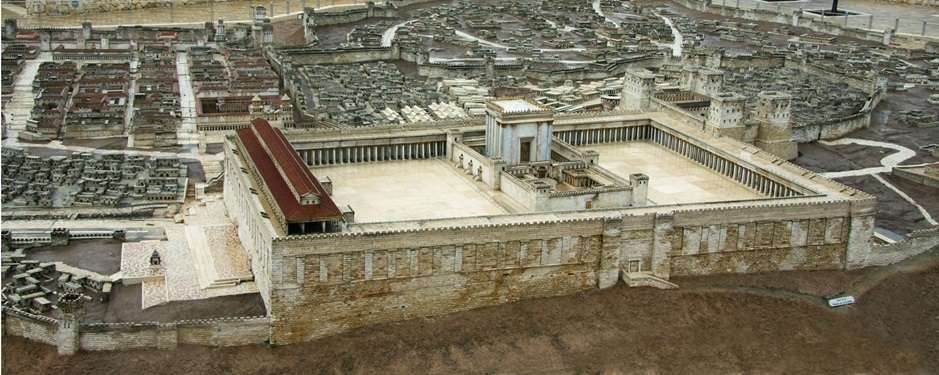
The first step was to rededicate the temple. It was cleansed and all pagan symbols and idols were removed.
However, there was a problem. The menorah, the seven-branched candelabrum in the temple, was never to be extinguished. But the Seleucids had contaminated (almost) all the oils. After the battles, only a single jar was found, still closed with the seal of the high priest. The consecrated oil would last for a maximum of one day…
Nevertheless, they lit the candlestick … and miraculously it burned not just for 24 hours, but for eight whole days – until new, kosher oil could be produced.
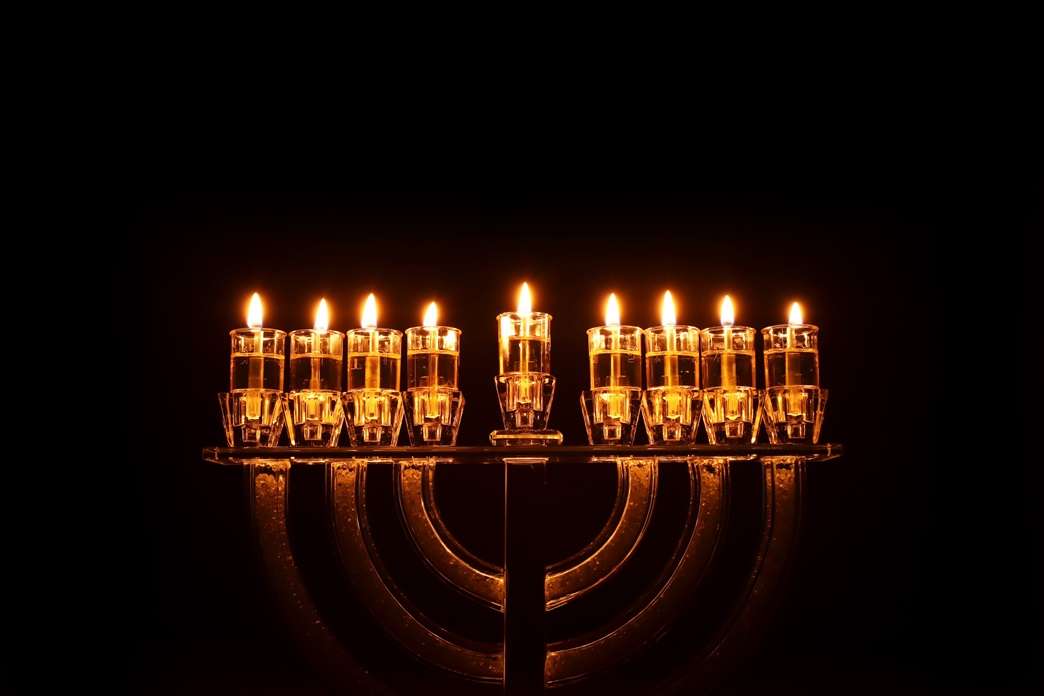
Just as when Solomon dedicated the Temple, God proved at the Hanukkat habayit (the rededication in 164 BC) that He was still present and made the impossible possible – like He promised.
The miracle of light had two dimensions: firstly, the oil that burned for so long. However, the equally great miracle was the end of spiritual darkness in the land, when the Jews turned back to their God and in return He gave them freedom and independence.
The traditional Jewish temple service was reinstated and a new era began: God had given his people dominion over their land for the second time.
The first Jewish kingdom under David and Solomon had lasted around 80 years and had collapsed in 926 BC after Solomon’s death. About 800 years later, the Maccabees had successfully established a sovereign Jewish state for the second time. They founded the royal and high priestly family of the Hasmoneans and were able to maintain the Jewish independence for almost a hundred years.
Destruction and hope
But then civil war broke out again, this time between the Hasmonean brothers Hyrcanus and Aristobulus, who fought over the high priesthood and kingship – and finally in 63 BC. Ch. lost both including their independence to the Roman general Pompey.
In 66, the Jewish Zealots in Judea began a revolt against the Roman occupation and were able to achieve some initial success. But even now there were two camps facing each other: those who wanted to fight and the moderates around the high priest, who were counting on negotiations with the Romans. Instead of concentrating on their enemies, the Jewish parties attacked each other. So the Romans conquered Jerusalem and in the year 70 the temple was finally destroyed.
In the numerous waves of emigration that followed, the so-called Jewish diaspora, Jews scattered all over the world. They took their rites and customs with them, and the first Hanukkah celebrations soon began abroad.
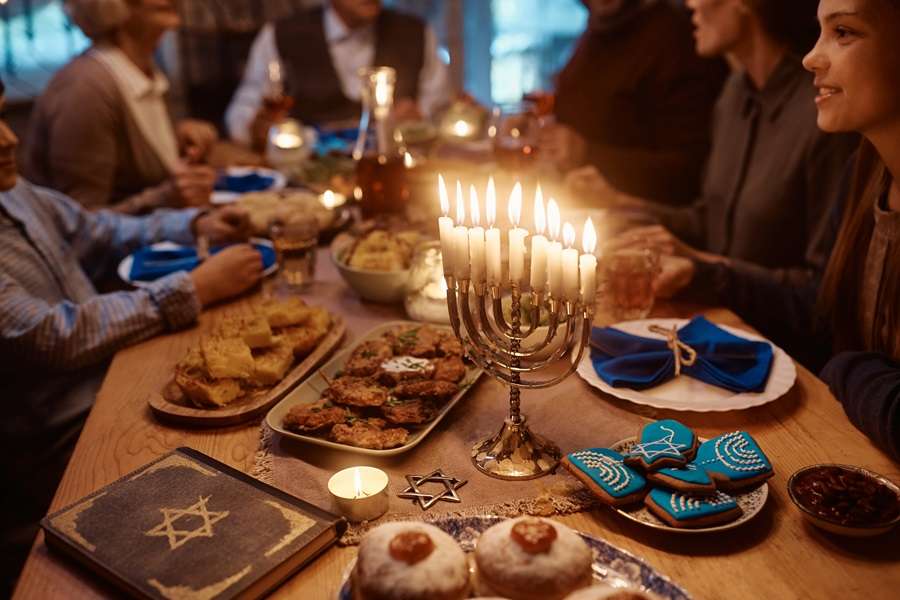
In Jewish homes and synagogues, during the eight-day festival, a new candle was lit every evening on the Hanukkah candelabra, using the ninth candle, the “shamash” (servant). The Hanukkah candlesticks were placed in the window or outside of the front doors, to be seen and to remind people of the miracle.
From sundown until midnight, as long as the lights were burning, people sang and played in the houses, and special dishes baked in oil were served. The dreidel game (spinning top) had a special importance and meaning. During the Seleucid oppression, this game had been used as a disguise to hide the fact that the forbidden Torah was actually being studied. The letters on the 4 sides of the spinning top stand for the saying: Nes Gadol Haya Sham – A great miracle happened there!
Hanukkah became a source of light and hope in the homes. With the words of blessing: “Blessed are You, Lord our God, King of the world, who performed miracles for our fathers in those days – and at this time”, the confidence was expressed, that this was not the end … for centuries.
And this hope was so strong that it survived the almost two thousand years in foreign countries, the hatred, the persecution, the pogroms and finally the terrible Holocaust.
The third time
In 1948, just three years after the Holocaust, the Jews experienced another national miracle: the founding of the State of Israel. In human terms, this occurred during the most unlikely of times. The Jewish people were just a smoldering wick in the storm. But after all the centuries of seemingly futile struggle for a country of their own and after the extermination of six million Jews, the survivors were given this unlikely opportunity.
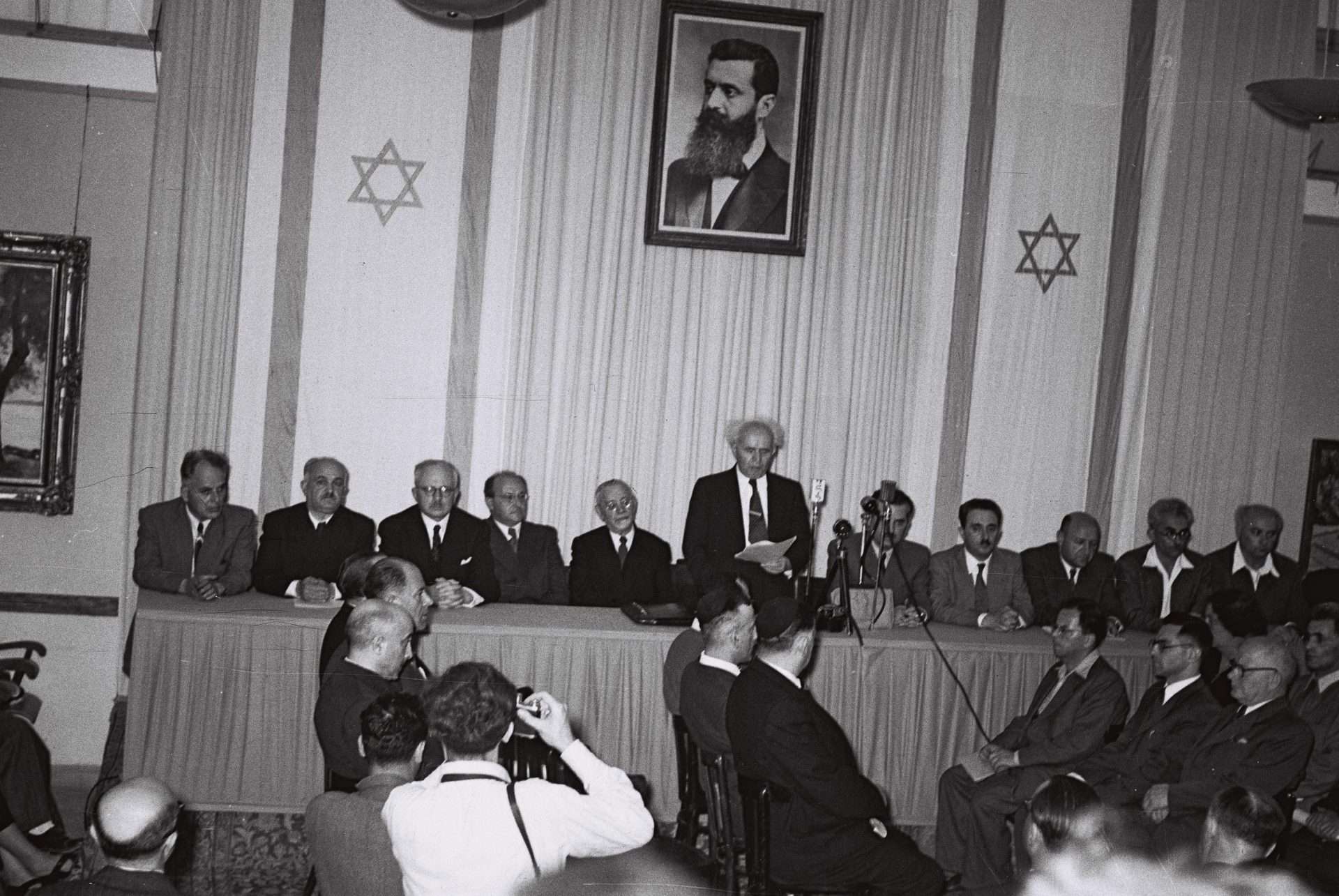
Ben Gurion proclaimed the Jewish state and the Israelis actually succeeded – against all odds and despite being outnumbered 1:246 – in holding their ground against the five Arab armies that attacked less than 24 hours later.
Thus, for the third time in Jewish history, a sovereign, independent state emerged.
The centuries-old hope of once again living as a free, independent people in the Land of Israel, which the Israeli national anthem Hatikva tells of, was fulfilled.
“As long as deep in the heart, the soul of a Jew yearns,
And forward to the East, to Zion, an eye looks
Our hope will not be lost, the hope of two thousand years,
To be a free nation in our land, the land of Zion and Jerusalem.”
After that, the light of Israel began to shine ever brighter. Where there used to be swamps, sand dunes and desolate land, pioneering spirit and perseverance gave rise to flourishing life. Towns, moshavim and kibbutzim full of bubbling joy of life, innovation, creativity and a sense of art and beauty developed, where the elderly enjoy their twilight years and the squares are full of playing children. From all corners of the earth, tens of thousands returned to their original homeland.
Everywhere you could see biblical promises being fulfilled (for example, Ezekiel 36:35; Zechariah 8:5; Isaiah 43:5-7). The impoverished agricultural state became a country with leading technology and a strong currency. Despite constant threats, terror and repeated attacks by neighboring Arab nations, Israel managed to assert itself convincingly. In 2018, on its 70th anniversary, Israel was one of the 10 most influential countries in the world and also topped the Happiness Ranking.
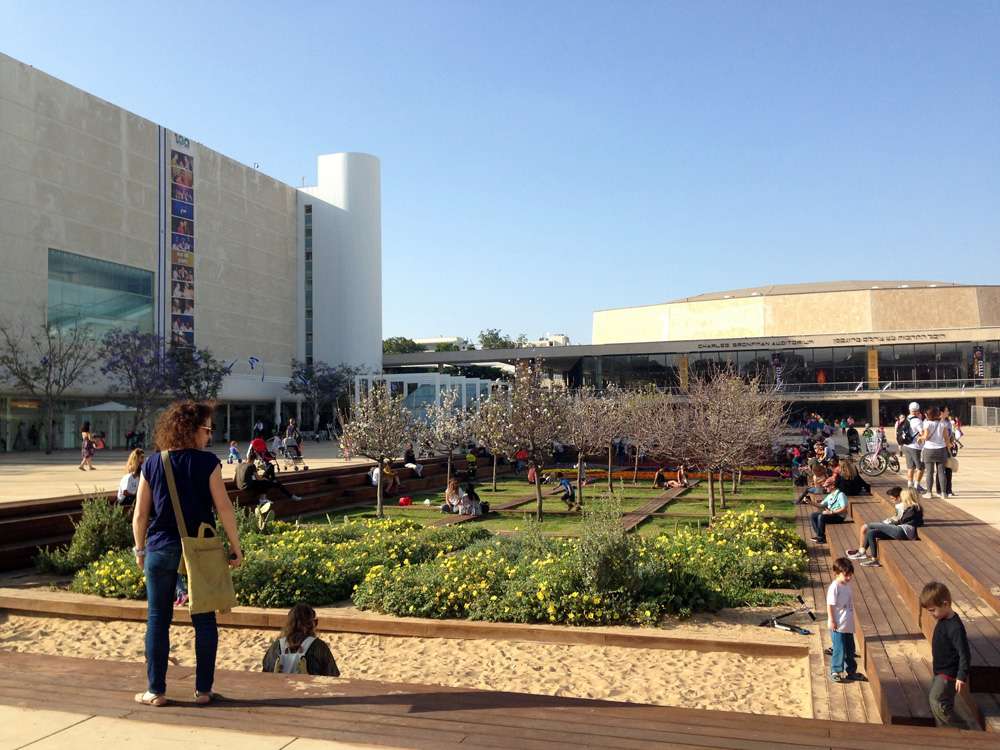
However, the descendants of the founding generations no longer seemed to be as aware as their ancestors, that the existence of their country was a miracle. Foreign influences fascinated large sections of the population. And slowly but inexorably, the Israeli population drifted apart. There were the secular liberal Jews, and there were the ultra-orthodox. The one group, who wanted to divide Israel and share it with the Arabs and the other who tried to establish new Jewish settlements in Judea and Samaria. Those with an international orientation and those with a national orientation. The left and the right, the progressive and the conservative. Since April 2019, there have been 4 parliamentary elections in 4 years. The coalitions broke down due to disagreement. Protests that were ostensibly against a planned judicial reform, but ultimately against the government itself, shattered Israel and paralyzed half the country in 2023.
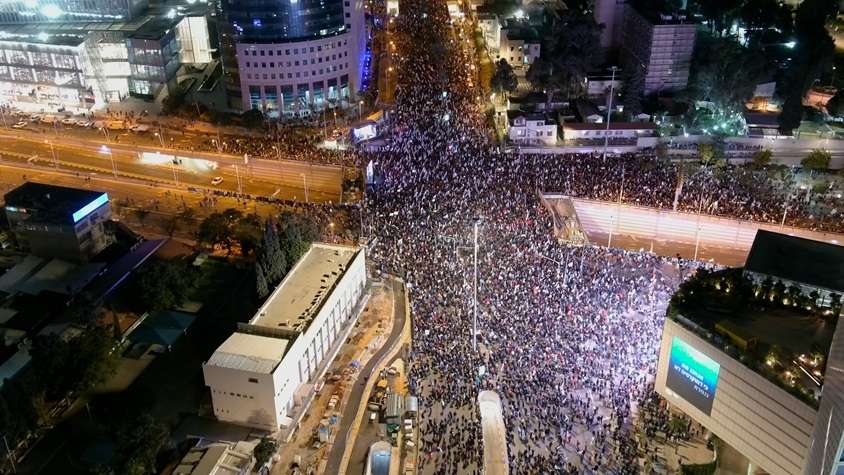
And just like over 2000 years ago, Israel’s enemies sensed their opportunity in the face of these internal disputes and struck on October 7, 2023. Not since the mass murders of the Holocaust have so many Jews been killed in one day. And rarely in world history has a massacre been carried out with so much bestiality.
Old, young, men, women, children. Maltreated, mutilated, raped, burned, tortured, kidnapped by Hamas.
Weeks later, not all of the dismembered, charred bodies have been found and identified.
Weeks later, over 200 Israeli hostages were still held by Hamas terrorists.
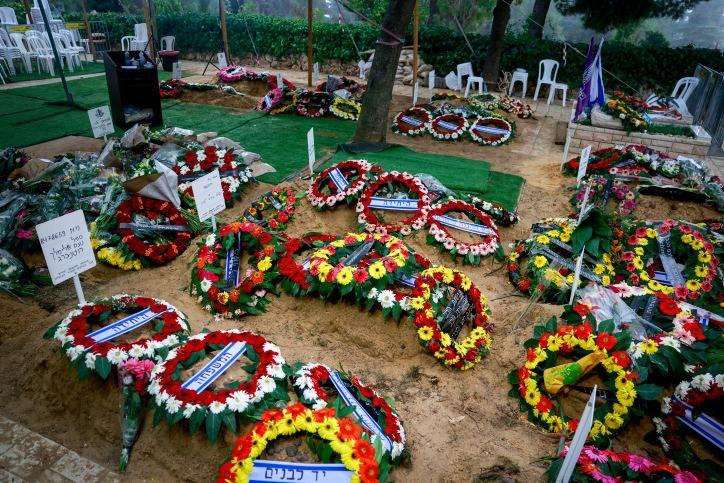
Weeks later, under enormous international pressure, Israel agreed to a ceasefire, in order to free a few Israeli hostages … and released three times as many imprisoned Palestinian criminals as the number of hostages released in return. During this time, Hamas of course has seized the opportunity to restock and regroup.
Meanwhile hundreds of thousands of Arabs around the world are flaunting their power in demonstrations calling for the destruction of Israel and the Jews.
After 75 years of existence, Israel is once again fighting an uphill battle – against Hamas, Hezbollah and Iran, which is backing them. Many other states are supporting Israel’s enemies. Israel’s official “friends” are demanding, that Israel stop the fighting, which in plain language means letting the terrorist organization Hamas survive… and living with the danger of a new massacre.
But in the midst of all this darkness, pain, despair and grief also a new unity among the Israeli people developed. Disagreements were put aside. Jews from all corners of the world returned from abroad to their homeland to defend it. Many orthodox Jews who had previously refused military service joined the army voluntarily. Liberal Jews, for whom their Jewish identity had previously not been so important, now understood the importance of belonging to God’s people. And in the midst of a hostile majority in the world, many realize that God is their only true ally.
Soldiers, civilians, people of all ages, education and backgrounds are seeking God and hoping for the blessing of the everlasting covenant He made with His chosen people.
Where will all this lead?
And at this time…
This year, when the candles are lit on the Hanukkah candelabra and the prayers are said, the two thousand-year-old words of blessing take on a very special intensity and meaning.
“Blessed are You, Lord our God and King of the world. You have sanctified us through your commandments and commanded us to light the Hanukkah light.
Blessed are You, Lord our God, King of the world, You have given us life and preservation and have allowed us, to reach this time.
Blessed are You, Lord our God, King of the world, You have performed miracles for our ancestors in those days and at this time.”
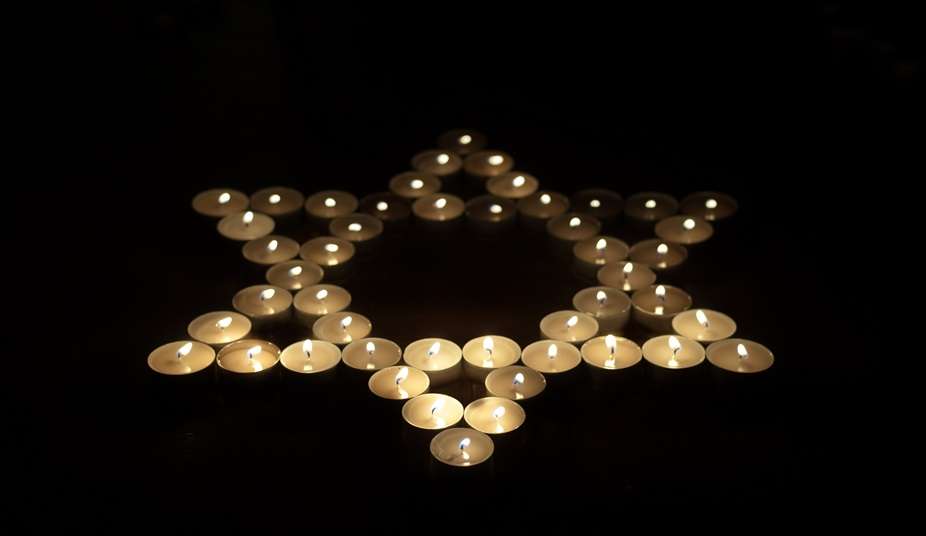
In addition to our thanks, we ask You from the bottom of our hearts: give Israel life and preservation this day also and let us experience again, even in these dark times, how You stand by Your people and how You perform miracles for them. Let them and us see and recognize Your light in this time.
Chag Hanukkah Sameach! Happy Hannukkah!
Other contributions by the author:


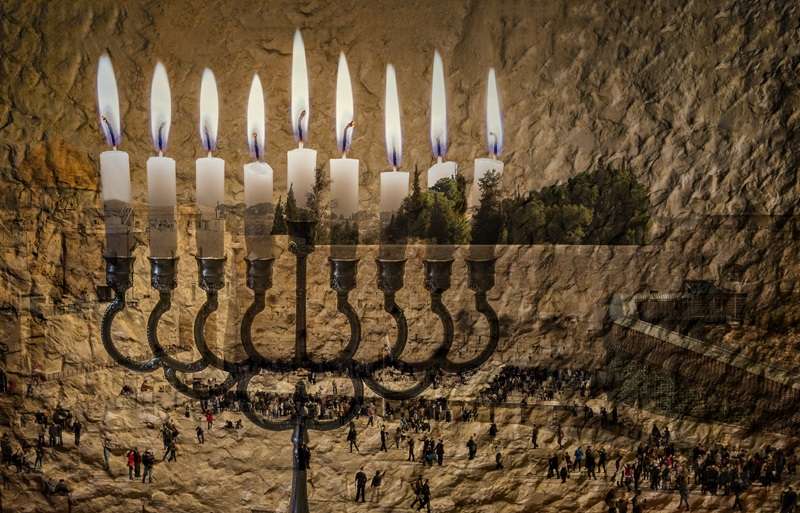












Hannukkah also has a prophetic message. Jesus invited us to understand Daniel’s abomination [Dan 9:27; 11:31; 12:11; Matt 24 :15] as a midrash to understand how the son of perdition will beguile Israel in the last days. The church doesn’t teach this [because it’s Jewish], but messianic teaching has made us aware of just how important it is to understand Hanukka as more than a historic feast. Jewish apostles spoke in detail of this in 2 Thess 2. The one the church calls Antichrist gets worshipped in Israel’s temple. Israel and the church need to understand this event together.